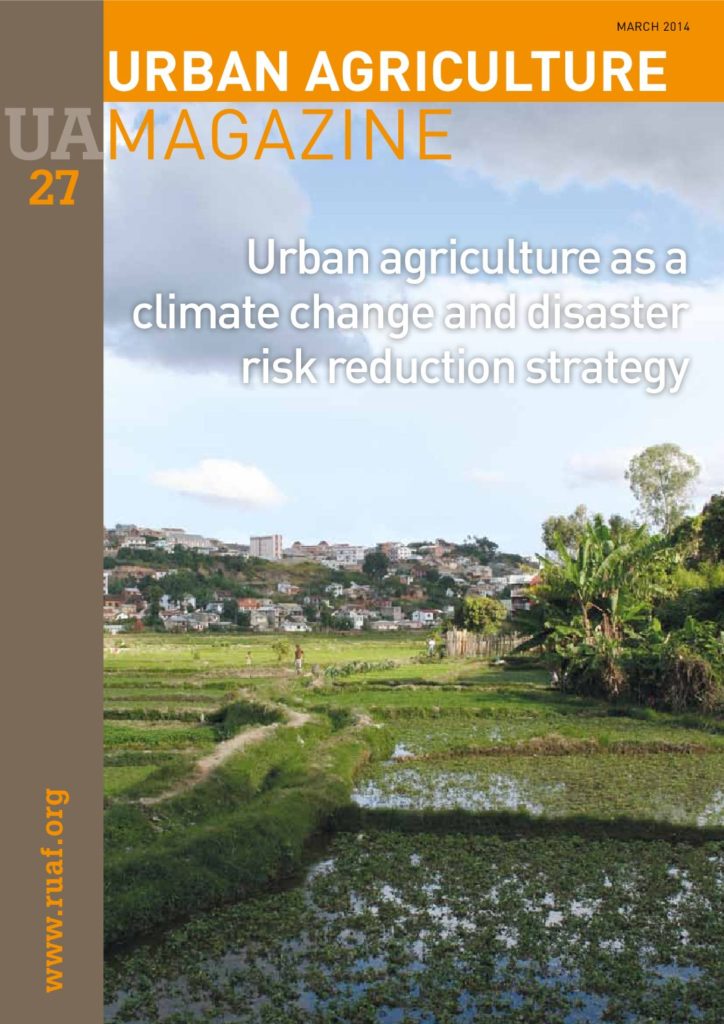Cities and climate change are virtually inseparable. Cities are major contributors to green house gas emissions and thus climate change. Cities, and their large urban populations, are also directly and indirectly affected by climate change, with the urban poor being most at risk. Cities have an important role to play in climate change mitigation and adaptation and in enhancing the climate resilience of their vulnerable residents. Urban agriculture may be considered an adaptation strategy that can bring multiple benefits.
Also available in Portuguese.
Contents:
- Urban Agriculture as a Climate Change and Disaster Risk Reduction Strategy
- Cities as Key Actors to act on Food, Water and Energy Security in the Context of Climate Change
- The Need for a Diverse and Responsive Food System
- Policy Considerations for Urban and Periurban Agriculture’s Role in Adaptation and Mitigation of Climate Change in African Cities
- Urban Agriculture as Green Infrastructure: The Case of New York City
- Promoting Urban Agriculture as a Climate Change Strategy in Kesbewa, Sri Lanka
- Innovations in Urban Agriculture and Energy for Climate-Smart Cities in Kenya
- Rooftop Agriculture in a Climate Change Perspective
- Multiple Use of Green Spaces in Bobo- Dioulasso, Burkina Faso
- Coping with Flooding in Bangkok
- Needs and Requirements for the Monitoring of UPAF Impacts
- A First Framework for Monitoring the Impacts of Urban Agriculture on Climate Change
- Monitoring the Climate Change Impacts of Urban Agriculture in Rosario, Argentina
- Surface Temperature Variations in the Kesbewa Urban Council Area, Sri Lanka

